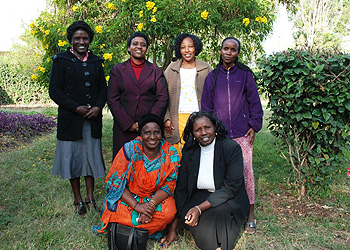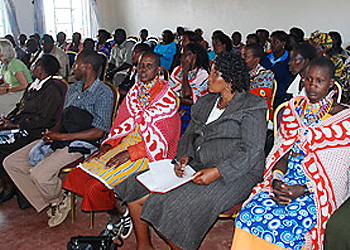
Why
The great strength of the Maasai Girls Education Fund is the engagement of the Maasai community. MGEF believes that the only way to overcome the economic, social, and cultural factors that prevent girls from getting an education is to work on-the-ground with the community. MGEF has included the community in every aspect of its development. From the beginning, women’s advocacy groups, educators, local government officials, chiefs, and parents were consulted to ensure that all perspectives and opinions were considered, and that our work is appropriate to the culture and accepted by its people.
Forms of Partnership
 MGEF works in partnership with a community based organization in Kenya, which was created in 2000 specifically to assist MGEF. This partnership model was designed to involve the Maasai community. The Kajiado organization, which has the same name but is not affiliated with the US organization, manages the scholarship program and organizes all MGEF workshops with two staff and 56 volunteers throughout Kenya’s Kajiado County, where two-thirds of Kenya’s Maasai population live. They also act as cultural advisors when designing strategies.
MGEF works in partnership with a community based organization in Kenya, which was created in 2000 specifically to assist MGEF. This partnership model was designed to involve the Maasai community. The Kajiado organization, which has the same name but is not affiliated with the US organization, manages the scholarship program and organizes all MGEF workshops with two staff and 56 volunteers throughout Kenya’s Kajiado County, where two-thirds of Kenya’s Maasai population live. They also act as cultural advisors when designing strategies.
The Kajiado organization works with parents, schools, and students to ensure optimal conditions for each selected student to succeed. They are the eyes, ears, and voice of the Fund, helping to identify needy girls and to bring attention to girls who are at risk of dropping out of school because of circumcision, early marriage, teen pregnancy, poor attendance, peer pressure, poor health, or financial need. All staff, volunteers, and parents attend annual meetings and participate in discussions that affect the future of the organization.
MGEF has also organized governance workshops and provided staff training for the Kajiado organization to strengthen their management skills and ensure good governance.
